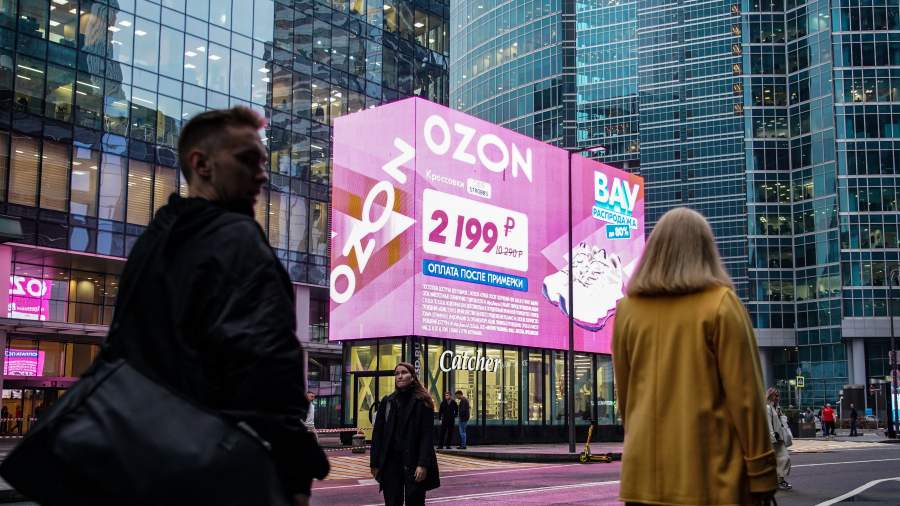Advertising is a delicate matter: how has the regulation of the sphere changed

In recent years, advertising legislation in Russia has been adjusted and updated almost annually. It is influenced not only by internal, but also by geopolitical factors — for example, in March of this year, there was a ban on advertising on banned social networks. And at one of the SPIEF sessions, Deputy Head of the Federal Antimonopoly Service Adilya Vyaseleva spoke about the draft decree of the Government of the Russian Federation developed by the Service, which clarified the criteria for classifying information on marketplaces and aggregator sites, in Internet search engines and social networks to online advertising.
Experts note that the concept of "advertising" in its current form has existed in the legislation for a long time. And if there are difficulties with interpretation, explanations from the Federal Antimonopoly Service come to the rescue.
— They are like magic sticks or additional criteria for how certain information should be perceived in the context of the definition of "advertising" in the law. If there were no explanations of what should be considered exceptions to this concept, much would be recognized in practice as advertising," Svetlana Kuzevanova, a media lawyer and author of the Kuzevanova Narrates Telegram channel, said in a conversation with Izvestia.
What is advertising and what is not
It is generally accepted that advertising is a public message that motivates a user to do something related to a particular company: purchase a product or service, leave a review, visit a website, activate a promo code, and share a link with friends. However, from a legal point of view, not all messages that are associated with the company and aimed at attracting consumer attention are considered advertising. In particular, the FAS considers advertising to be messages that are aimed at drawing attention to a product and emphasize its special properties — price, size, color, and benefits.
— Many people mistakenly believe that advertising is any mention of a brand in a positive context. But that's not really the case. For example, partner logos on a website or job advertisements are traditionally not recognized as advertising; the FAS position on this issue has long been formed. Nevertheless, at every advertising training, I am asked the question: will the job advertisement be an advertisement for a future employer? There is another point that puts many in a stupor. Paying for information placement is not necessarily a sign of advertising. The FAS evaluates the content of the information and the circumstances of its posting, and not solely the nature of the relationship between business and the media or the blogger," Kuzevanova emphasizes.
The expert notes that there are a number of criteria by which it is possible to understand which information about a company in the media or bloggers will be advertising, and which will not.
— If a business enters the site with a request to post information about itself for money, then there may be signs of advertising. If he talks qualitatively about his news and events through press releases, getting into informational occasions, then there are no problems with determining the status of such content," Kuzevanova added.
Exit from the "gray zone"
The law "On Advertising" appeared back in 2006 and has been regularly updated since then. For example, at the end of March, the State Duma adopted an amendment banning advertising on the resources of extremist and undesirable organizations. Facebook Instagram, Facebook (owned by the organization Meta, which is recognized as extremist), as well as blocked X (formerly Twitter) and LinkedIn will not be allowed to advertise from September 1, 2025. Prior to this, advertising on banned social networks was in a "gray area" — many continued to post ads from influencers, and such ads needed to be labeled.
In addition, the draft government decree, which was mentioned by the deputy head of the Federal Antimonopoly Service during the SPIEF, as experts note, clarifies the criteria for determining advertising, which makes it possible to clearly distinguish it from promotion. According to the document, advertising does not include materials of a reference, informational or analytical nature that an online resource provides to a user in response to his request or using the collected data. This, according to experts, means that the so—called "search promo" — the promotion of goods and services on marketplaces, classifieds and search engines - is also not considered advertising.
— Search promo performs not an advertising, but an informational function — it helps users find the goods or services they need. In this case, the classic advertising task of generating demand is not fulfilled. For example, when a person is looking for a car or a hotel, such platforms act as a selection assistant. Also, the search promo does not perform the classic advertising task of drawing attention to a specific product or service, since all the information in the search results is homogeneous," Boris Omelnitsky, president of the Association for the Development of Interactive Advertising (ARIR), explained in an interview with Izvestia.
He notes that such changes, first of all, eliminate confusion in the classification of advertising.
— Promotion on marketplaces and in search engines has always raised questions, as it did not fall under the classical definition of advertising. At the same time, this tool remains one of the key tools for businesses and agencies in promoting goods and services across the country. Its exclusion from the category of advertising, firstly, eliminates a long-standing confusion in the classification, and secondly, it exempts from the three percent fee. This is especially important for businesses that can avoid additional financial burdens and avoid shifting increased costs to the consumer," the expert concluded.
Переведено сервисом «Яндекс Переводчик»
